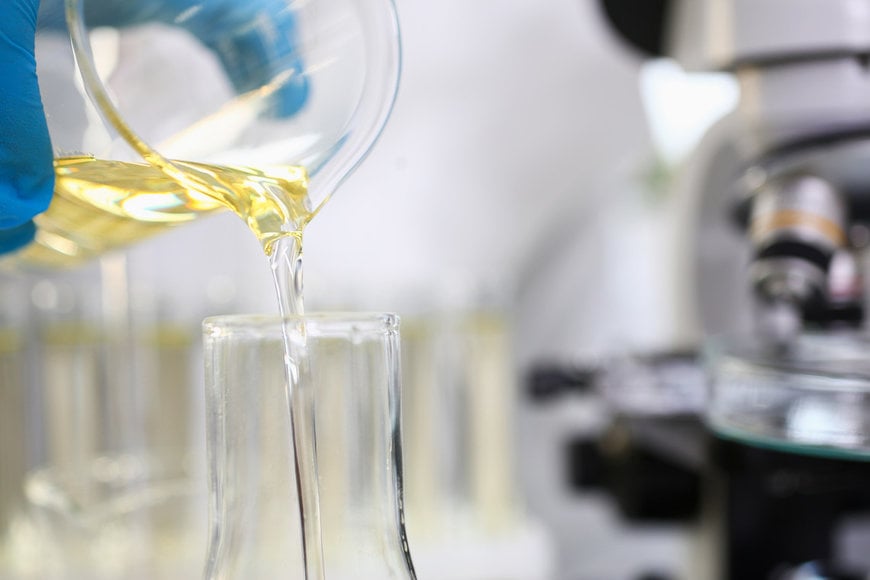railway-international.com
05
'23
Written on Modified on
Research on synthetic fuels in track maintenance
For a sustainable future – Plasser & Theurer thinks ahead.

Rails are the infrastructure for climate-friendly mobility. That is why our ambition is to make carbon-neutral track maintenance possible and, in doing so, take the sustainability of the railway to the next level. Through openness in research and research, we think beyond existing technologies and are constantly expanding our portfolio of options for designing green machines.
Synthetic fuels are a source of hope for improving the environmental friendliness of large machines and increasing the amount of renewable energy sources.
With a view to the future, conventional fuels could cause a greater financial burden than synfuels in a few years' time due to carbon pricing. In any case, with our machines you are optimally equipped for the future. We are working very ambitiously to always ensure the usual performance and, at the same time, increase sustainability.
We have set ourselves the goal of advancing carbon-neutral track maintenance and thus contributing to even greater rail sustainability. In addition to our own E³ hybrid machines, synthetic fuels in particular are an important alternative. Therefore, newly manufactured machines can already be delivered so they are compatible for synthetic fuels.
Carbon-neutraltrack maintenance - moving towards the future
We are known for our pioneering role when it comes to greening track maintenance. Because the machines, as the core of construction sites, are a critical step towards carbon neutrality. Technological openness is particularly important for us here, so that customers also enjoy the greatest possible freedom of choice and flexibility.
For track maintenance machines, we already launched the E³ hybrid drive in 2015. Today, we offer vehicles in this segment that are equipped with a battery to enable them to work an entire shift without emissions, as well as machines that use green traction current from the overhead contact line.
For large on-track machines operating with the assembly line method, synthetic fuels are a promising way to reduce the environmental impact and make track maintenance machine operations more sustainable.
But hybrid vehicles equipped with a diesel-electric power pack can now also run the diesel engine on synthetic fuels in addition to battery operation. In other words, synfuels are an environmentally friendly alternative wherever there is a reliance on a combustion engine, for example, because no overhead contact line is available, or it cannot be used for organisational reasons, and as a blackout precaution.
Ready for the future – track maintenance machines and synthetic fuels
Especially in view of rising CO2 costs and sustainability criteria for construction sites and infrastructure, it will become essential to offer machine operating companies the greatest possible peace of mind.
Customers should be free in their choice of fuels, which is why newly manufactured machines can already be delivered compatible for synthetic fuels. Fuel switching can also be considered for older vehicle series. However, a case-by-case assessment is always assumed to be necessary here.
Since the fuel-carrying components in particular are crucial, we work closely with the engine manufacturers.
Currently, P&T Research is carrying out extensive tests of the machines and engines using synthetic fuels, also working with partners such as Deutsche Bahn. Our mission is also to offer the usual high reliability and performance of the machines by using synfuels.
Biofuels take off
Synfuels include all fuels that are synthetically produced from non-fossil origin. They include hydrogenated vegetable oils, or HVO (hydrotreated vegetable oil), e-fuels, and x-to-liquid fuels, e.g. gas-to-liquid.
HVO is a second-generation biofuel and is already used in freight transport. DB Cargo will save around 30,000 t of CO2 in Germany this year by replacing 10 million litres of diesel fuel with HVO.
E-fuels, on the other hand, are still viewed critically due to the high energy consumption during production and the resulting high prices.
www.plassertheurer.com

